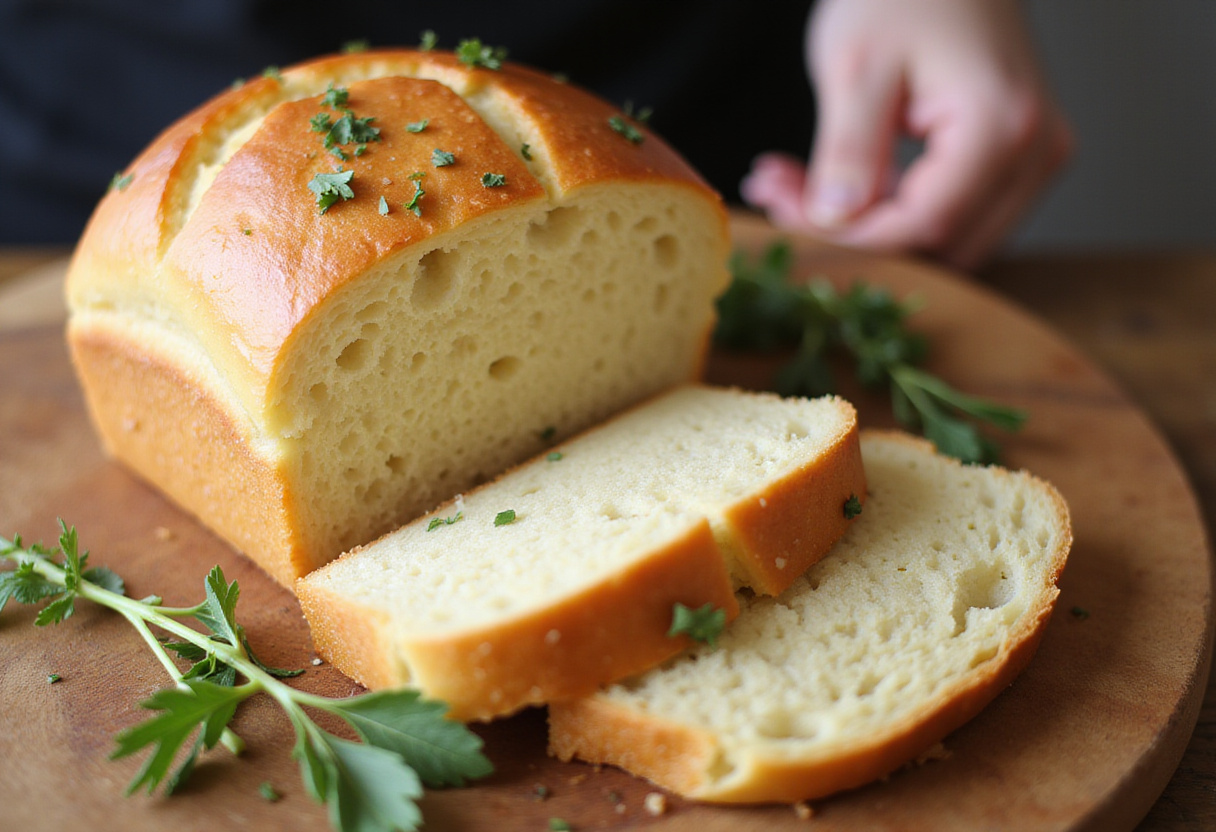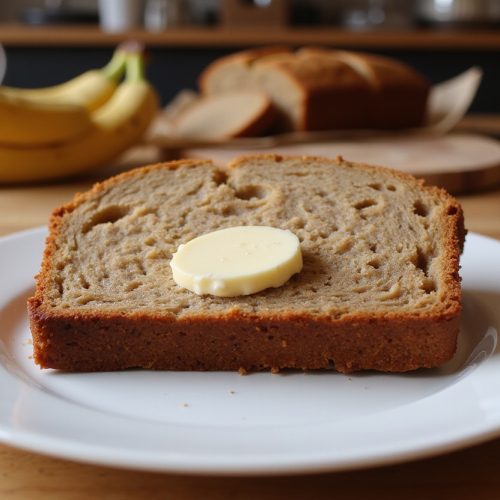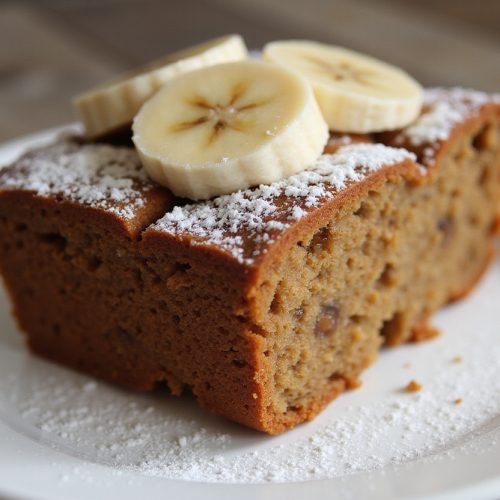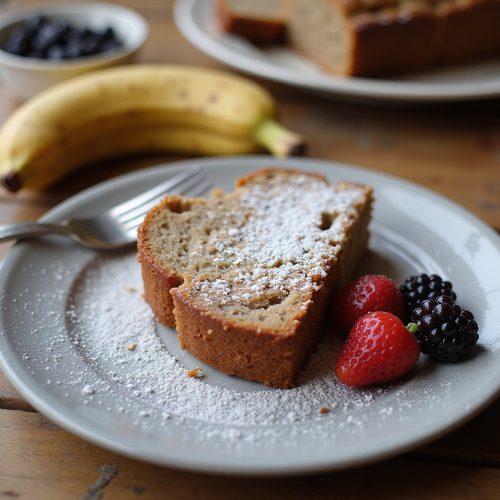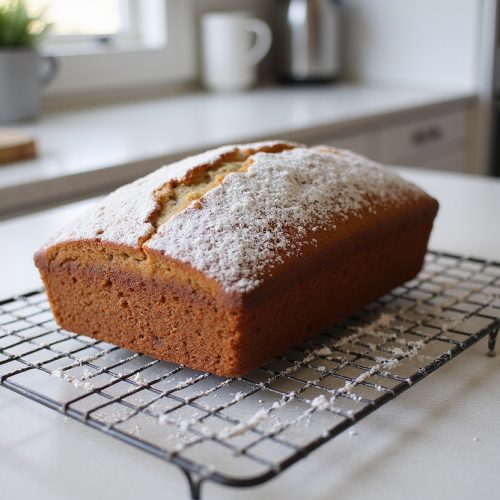Homemade Cabbage Bread Recipe: A Rustic and Flavorful Loaf 🍞🥬🏡
1. Introduction
There’s something incredibly comforting about the aroma of freshly baked bread wafting through the kitchen. This cabbage bread recipe takes that comfort to a new level, infusing the simple pleasure of bread with the subtle, earthy sweetness of cabbage. It’s a delightful twist on traditional bread, offering a unique flavor profile that’s both savory and satisfying. Baking bread is already a rewarding experience, but adding cabbage? It’s a game changer! Craving more savory delights? Explore our dinner recipes for some culinary inspiration. Whether you’re looking to add a creative touch to your meals or simply want to explore new baking horizons, this homemade cabbage bread is a perfect choice.
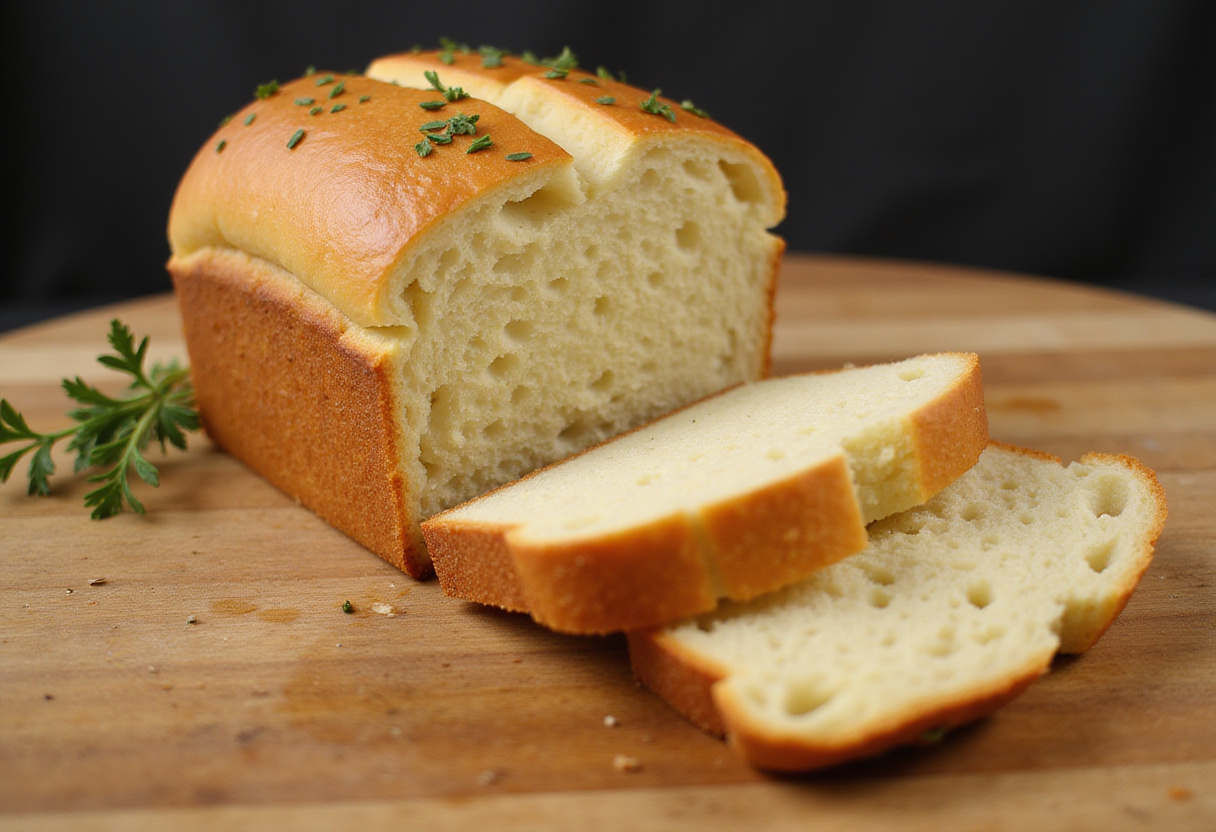
This savory cabbage loaf is surprisingly easy to make, using common pantry ingredients and requiring minimal effort. The addition of sautéed cabbage not only adds moisture and flavor but also a subtle sweetness that complements the dough beautifully. If you are looking for something else and can’t put your finger on it, maybe reading our about page will inspire you… Perfect as a side dish, a base for sandwiches, or simply enjoyed on its own, this cabbage bread recipe is sure to become a family favorite. Get ready to embark on a baking adventure that will fill your home with warmth and delicious aromas!
2. Why You’ll Love This Recipe
This cabbage bread recipe stands out for several reasons. Firstly, it’s incredibly versatile. The mild flavor of cabbage blends seamlessly with other ingredients, making it a perfect canvas for additional herbs, spices, or even cheeses. Thinking about cheese? Why not checkout America’s favorite dish? Secondly, it’s a great way to sneak in some extra vegetables into your diet, especially for those who aren’t particularly fond of eating cabbage on its own. The baking process transforms the cabbage, mellowing its flavor and creating a moist, tender crumb. And, for some awesome savory food pairing ideas, consider checking out this external resource that discusses savory cabbage bread options.
Moreover, this homemade cabbage bread is a budget-friendly option. Cabbage is an affordable vegetable, and the rest of the ingredients are likely staples already in your kitchen. This recipe is also a fantastic way to use up leftover cabbage, reducing food waste and turning it into something delicious. For other budget-friendly meals see our lunch category. Finally, the act of baking bread is inherently therapeutic. The kneading, the rising, and the anticipation of the final product can be incredibly rewarding, making this savory cabbage loaf a joy to create from start to finish. What else is a joy to create? Deserts!
3. Ingredients Overview
To make this delectable cabbage bread recipe, you’ll need the following ingredients:
- All-purpose flour: Provides the structure for the bread.
- Active dry yeast: The leavening agent that makes the bread rise.
- Sugar: Feeds the yeast and adds a touch of sweetness.
- Salt: Enhances the flavors of the other ingredients.
- Warm water: Activates the yeast.
- Olive oil: Adds moisture and richness to the dough.
- Cabbage: The star ingredient, providing flavor and moisture.
- Onion & Garlic: Adds a savory base flavor to compliment the cabbage.
- Optional herbs/spices: Such as thyme, rosemary, or garlic powder, to customize the flavor.
4. Step-by-Step Instructions
Follow these simple steps to create your own delicious homemade cabbage bread:
Step 1: Prepare the Cabbage
Begin by shredding the cabbage. In a large skillet, sauté the shredded cabbage, chopped onion, and minced garlic in olive oil until softened and slightly caramelized. This step enhances the cabbage’s natural sweetness and removes any bitterness. If you like garlic, did you know that the most eaten food in the world contains garlic? Season with salt, pepper, and any other desired herbs or spices. Let it cool slightly before incorporating it into the dough.
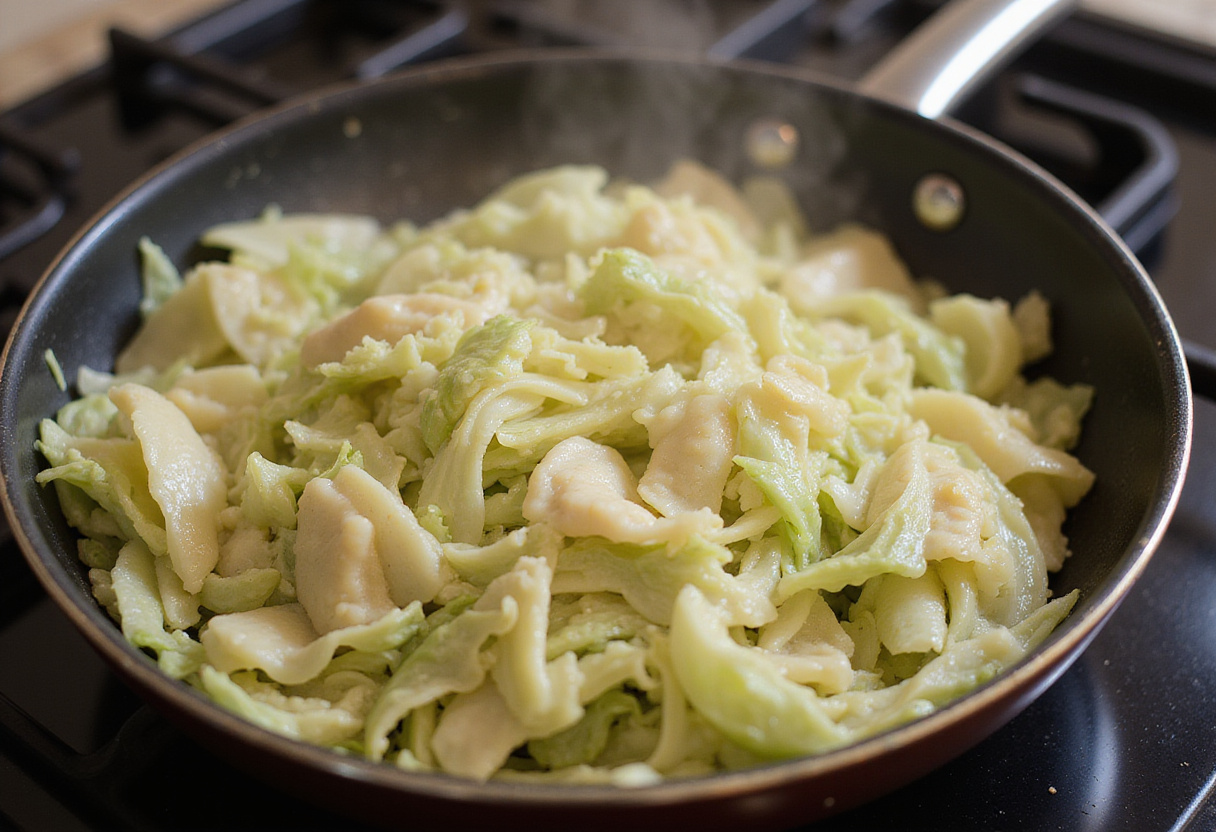
Step 2: Prepare the Dough
In a large mixing bowl, dissolve the active dry yeast and sugar in warm water. Let it sit for about 5-10 minutes until foamy, indicating that the yeast is active. Add the olive oil and salt. Gradually add the flour, mixing until a shaggy dough forms. Turn the dough out onto a lightly floured surface and knead for about 5-7 minutes, until it becomes smooth and elastic. If you are up early, maybe we can inspire you with ideas from our breakfast recipes?
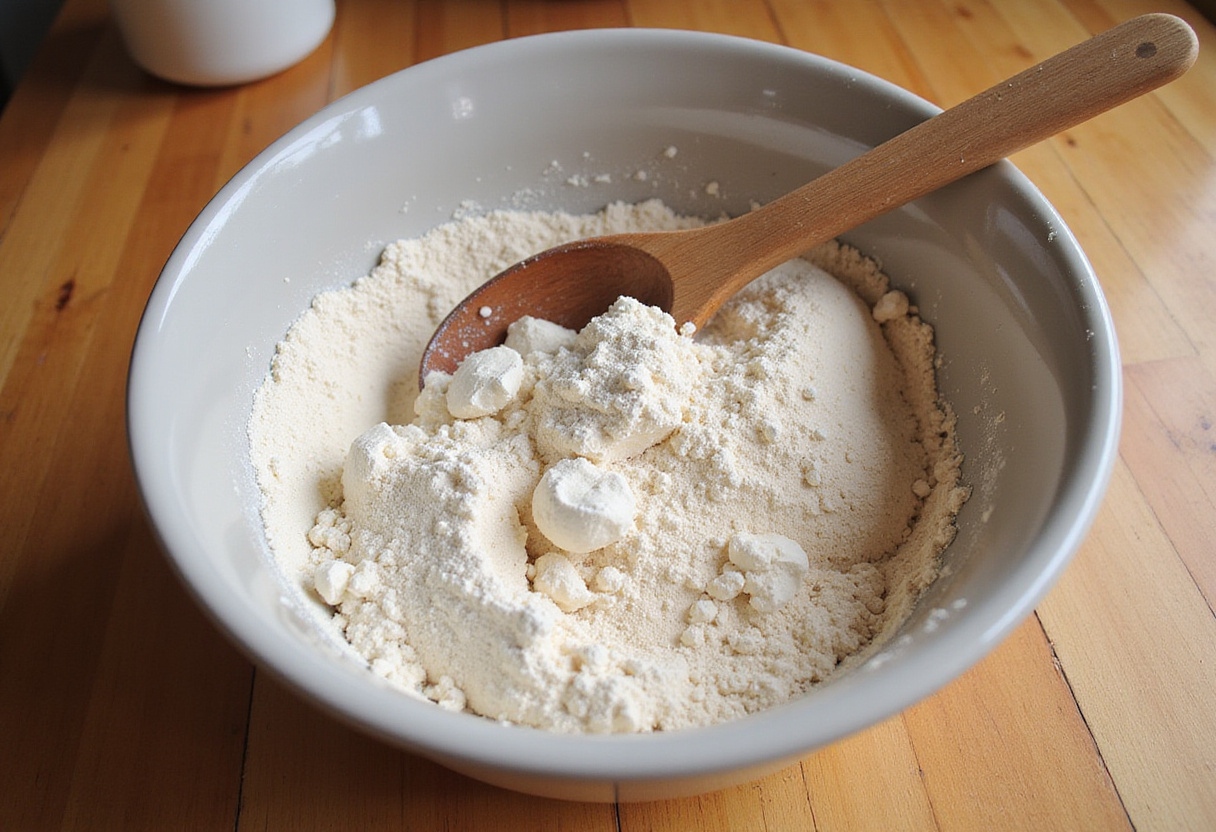
Step 3: Combine and Knead
Gently fold in the cooled sautéed cabbage into the dough. Ensure the cabbage is evenly distributed throughout the dough. Knead for another 2-3 minutes to fully incorporate the cabbage. Place the dough in a lightly oiled bowl, turning to coat. Cover with a clean kitchen towel and let it rise in a warm place for about 1-1.5 hours, or until doubled in size. Waiting is hard, but sometimes worth it, right? Check out what is the #1 cookie in the world while you wait…
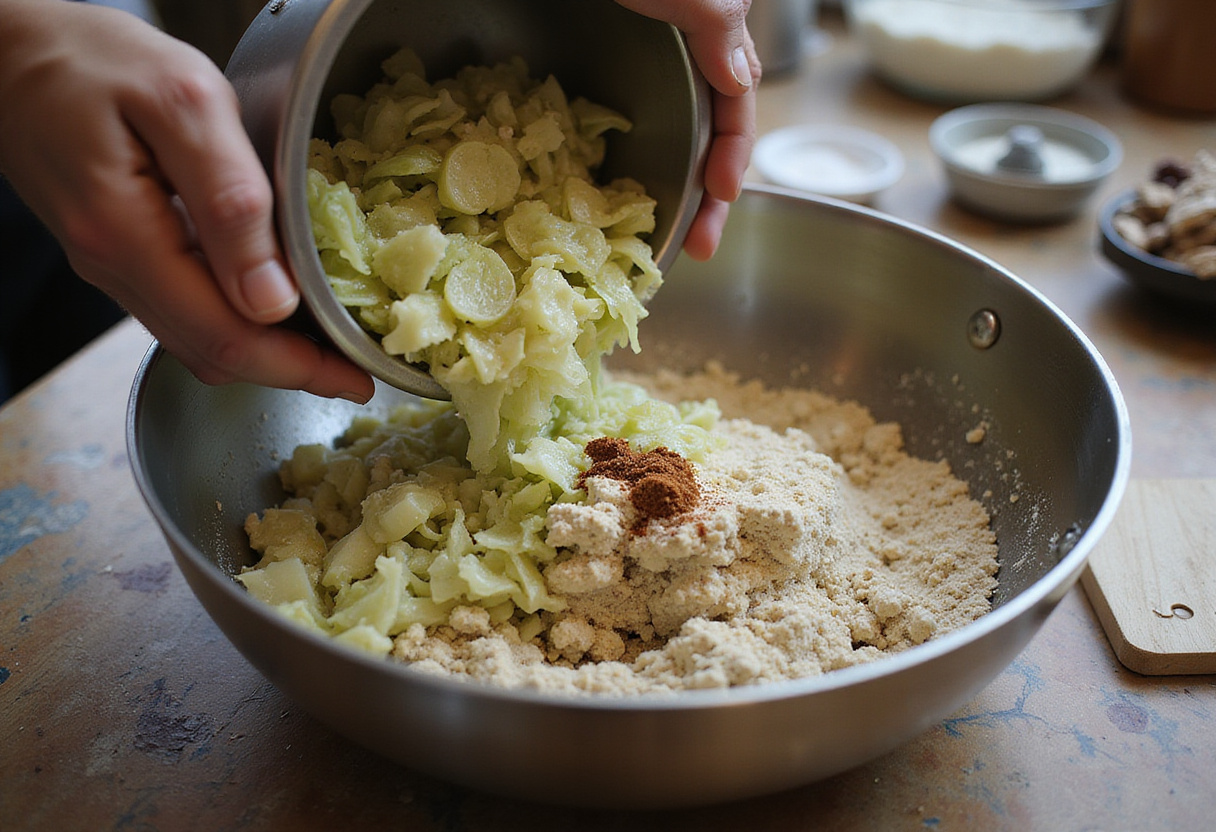
Step 4: Bake the Bread
Preheat your oven to 375°F (190°C). Punch down the risen dough and shape it into a loaf. Place the loaf in a greased or parchment-lined loaf pan. Cover and let it rise for another 30 minutes. Bake for 30-40 minutes, or until the loaf is golden brown and sounds hollow when tapped on the bottom. Don’t have time to bake? America’s favorite dessert does not require baking! Let it cool in the pan for a few minutes before transferring it to a wire rack to cool completely.
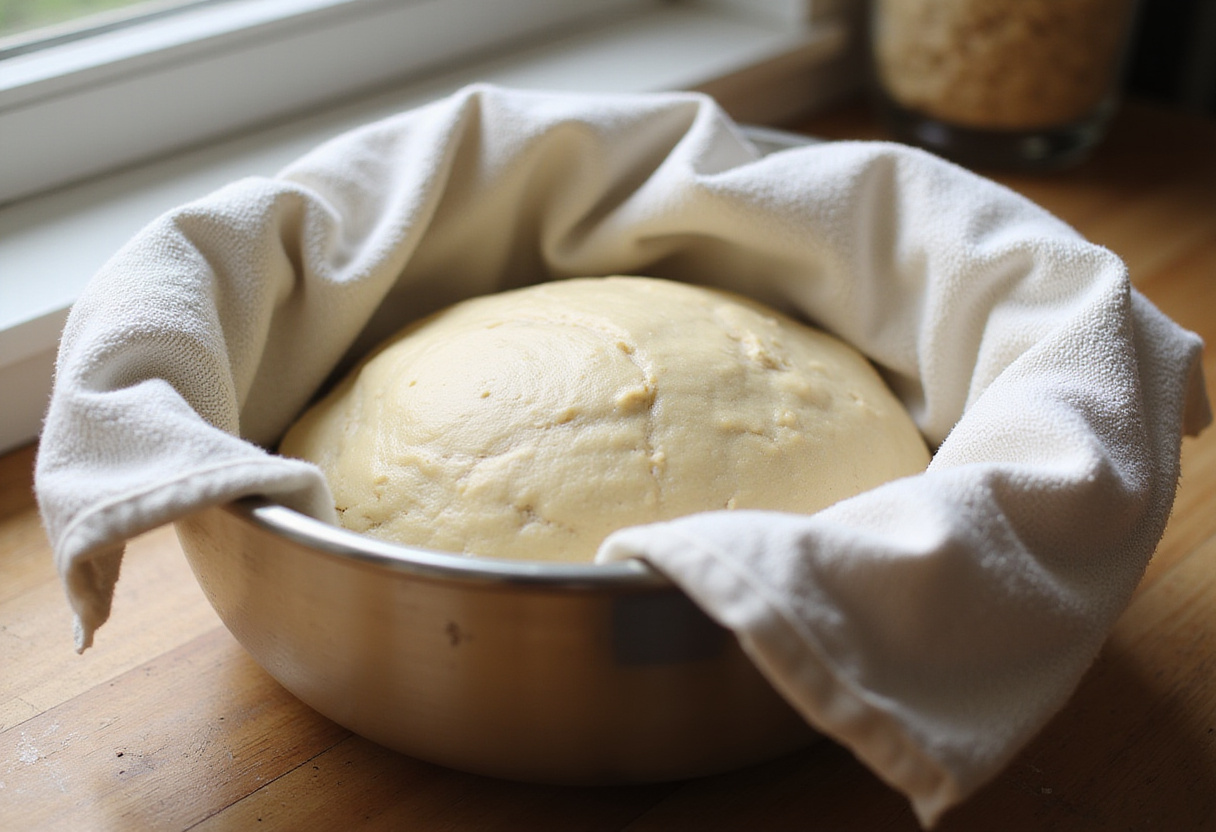
5. Tips and Tricks for the Perfect Cabbage Bread
To ensure your homemade cabbage bread turns out perfectly every time, consider these tips:
- Ensure your yeast is fresh: Expired yeast won’t activate properly, resulting in a dense bread.
- Don’t skip the sautéing step: Sautéing the cabbage mellows its flavor and removes excess moisture, preventing a soggy bread.
- Control the moisture: Cabbage releases water when cooked. Ensure most of the moisture has evaporated before adding it to the dough.
- Allow sufficient rising time: Rising is crucial for developing the bread’s texture. Be patient and let it rise in a warm, draft-free place.
- Use a thermometer: If you’re unsure whether the bread is fully baked, use a thermometer. The internal temperature should be around 200-210°F (93-99°C).
6. Variations and Additions
One of the great things about this cabbage bread recipe is its adaptability. Here are a few variations to try:
- Cheese: Add shredded cheddar, Gruyère, or Parmesan cheese to the dough for a cheesy twist.
- Herbs: Experiment with different herbs such as dill, caraway seeds, or dried onion flakes to enhance the flavor.
- Spices: Incorporate spices like smoked paprika, cumin, or chili powder for a savory kick.
- Seeds: Sprinkle sesame, poppy, or sunflower seeds on top of the loaf before baking for added texture and visual appeal.
- Bacon: Add chopped, cooked bacon to the cabbage mixture for a smoky and savory flavor boost.
7. Serving Suggestions
This savory cabbage loaf is incredibly versatile and can be served in numerous ways:
- As a side dish: Serve slices of warm cabbage bread alongside soups, stews, or roasted meats.
- As a sandwich bread: Use it to make delicious sandwiches with your favorite fillings.
- As toast: Toast slices and top with butter, cream cheese, or avocado.
- As an appetizer: Cut into cubes and serve with dips or spreads. Have you tried the number one most liked food as a spread?
8. Storing Your Cabbage Bread
To keep your homemade cabbage bread fresh, store it properly. Once cooled, wrap the loaf tightly in plastic wrap or place it in an airtight container. It can be stored at room temperature for up to 3 days or in the refrigerator for up to a week. For longer storage, slice the bread and freeze it in a freezer-safe bag. When ready to use, simply thaw and reheat in the oven or toaster.
9. Conclusion
This cabbage bread recipe offers a delightful twist on traditional bread, bringing a unique flavor and texture to your table. The combination of simple ingredients and straightforward steps makes it accessible for bakers of all skill levels. Whether you stick to the basic recipe or experiment with variations, this homemade cabbage bread is sure to impress. So, gather your ingredients, preheat your oven, and get ready to enjoy the comforting aroma and delicious taste of this rustic and flavorful loaf. Happy baking!
“` Print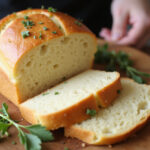
Homemade Cabbage Bread Recipe with a Flavor Boost
- Author: Sophia
- Total Time: 1 hour
- Yield: 1 loaf
- Diet: Vegetarian
Description
Enjoy the comforting aroma of freshly baked bread with a twist! This homemade cabbage bread recipe infuses the simple pleasure of bread with the subtle, earthy sweetness of cabbage. A savory and satisfying loaf perfect as a side dish or sandwich bread.
Ingredients
- All-purpose flour
- Active dry yeast
- Sugar
- Salt
- Warm water
- Olive oil
- Cabbage, shredded
- Onion, chopped
- Garlic, minced
- Optional herbs/spices (thyme, rosemary, garlic powder)
Instructions
- Prepare the Cabbage: Sauté shredded cabbage, chopped onion, and minced garlic in olive oil until softened and slightly caramelized. Season with salt, pepper, and optional herbs/spices. Let it cool slightly.
- Prepare the Dough: Dissolve active dry yeast and sugar in warm water. Let sit for 5-10 minutes until foamy. Add olive oil and salt. Gradually add flour, mixing until a shaggy dough forms.
- Combine and Knead: Turn dough onto a lightly floured surface and knead for 5-7 minutes until smooth and elastic. Gently fold in the cooled sautéed cabbage. Knead for another 2-3 minutes to fully incorporate the cabbage. Place dough in a lightly oiled bowl, turning to coat.
- First Rise: Cover with a clean kitchen towel and let rise in a warm place for 1-1.5 hours, or until doubled in size.
- Shape and Second Rise: Preheat oven to 375°F (190°C). Punch down the risen dough and shape it into a loaf. Place in a greased or parchment-lined loaf pan. Cover and let rise for another 30 minutes.
- Bake the Bread: Bake for 30-40 minutes, or until golden brown and sounds hollow when tapped on the bottom. Let it cool in the pan for a few minutes before transferring it to a wire rack to cool completely.
Notes
- Ensure your yeast is fresh for proper activation.
- Don’t skip sautéing the cabbage to mellow its flavor and remove excess moisture.
- Control moisture by ensuring most of the cabbage’s released water has evaporated before adding it to the dough.
- Allow sufficient rising time in a warm, draft-free place for optimal texture.
- Use a thermometer; the internal temperature should be around 200-210°F (93-99°C).
- Prep Time: 25 minutes
- Cook Time: 35 minutes
- Category: Bread
- Method: Baking
- Cuisine: European
Nutrition
- Serving Size: 1 slice (1/12 of loaf)
- Calories: 180 Kcal
- Sugar: 4g
- Sodium: 250mg
- Fat: 5g
- Saturated Fat: 1g
- Unsaturated Fat: 3g
- Trans Fat: 0g
- Carbohydrates: 30g
- Fiber: 2g
- Protein: 5g
- Cholesterol: 0mg
Keywords: cabbage bread, homemade bread, savory bread, vegetable bread, bread recipe, baking, side dish, sandwich bread, cabbage recipe

